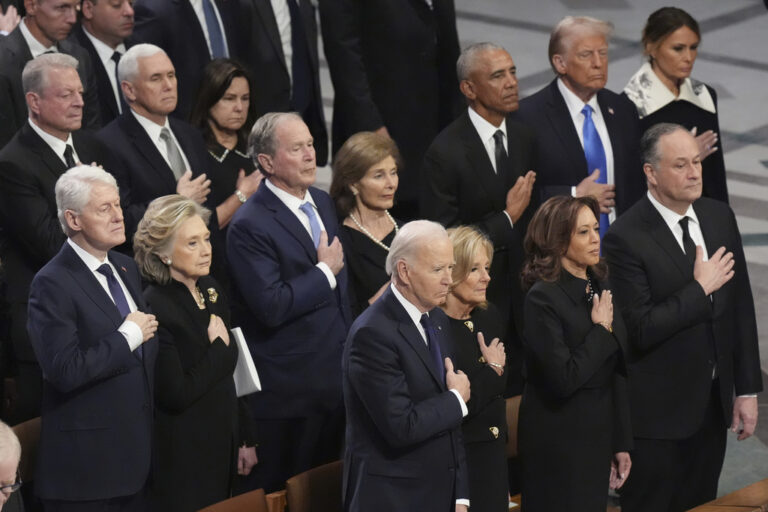 Despite the more than $50 billion that U.S. pharmaceutical companies have spent every year since the mid-2000s to discover new medications, drugmakers have barely improved on old standbys developed decades ago.
Despite the more than $50 billion that U.S. pharmaceutical companies have spent every year since the mid-2000s to discover new medications, drugmakers have barely improved on old standbys developed decades ago.
Research published on Monday showed that the effectiveness of new drugs, as measured by comparing the response of patients on those treatments to those taking a placebo, has plummeted since the 1970s.
While that is already unwelcome news to drug and biotech companies, the consequences for the pharmaceutical industry could get worse under President Barack Obama’s healthcare law.
The law established an independent research institute to compare the effectiveness of different treatments for the same condition. That way, patients as well as private insurers and government programs such as Medicare can stop paying for less effective therapies. If the new analysis is correct, then “comparative effectiveness research” could conclude that older drugs, which are more likely to be generics, are better than pricey new brand names that deliver the most profits for drugmakers.
Fears of a crisis in drug innovation have grown over the years. When the healthcare journal Prescrire in 2011 ranked new drugs, only 17 of the 984 developed since 2001 were deemed “a real advance” or better. And a survey of 184 expert physicians in 15 specialties published last month in Nature Reviews Drug Discovery showed the doctors were more likely to rate drugs more than a decade old as “transformative.”
To be sure, drugs that completely change outcomes for patients continue to emerge. Gleevec, from Novartis, greatly extends life for leukemia patients, for instance. New antivirals such as Incivek from Vertex Pharmaceuticals have doubled the cure rate in hepatitis C, and Eylea from Regeneron Pharmaceuticals is better than anything previously developed for macular degeneration.
Because of those and other examples, “we believe that a lot continues to be accomplished in terms of yielding very, very positive results for patients, so there seems to be a disconnect between that and this paper,” said Randy Burkholder, deputy vice president of policy at the Pharmaceutical Research and Manufacturers of America (PhRMA) trade group.
CANCER TO MENTAL ILLNESS
The new study in the journal Health Affairs examined 315 clinical trials that compared a drug to a placebo and were published in four of the world’s top medical journals (BMJ, Journal of the American Medical Association, Lancet and New England Journal of Medicine) from 1966 to 2010. The drugs targeted the full range of human ills, from cardiovascular disease and infections to cancer, mental disorders and respiratory illness.
In the early years, drugs easily beat the placebo: They were, on average, 4.5 times as effective, where effectiveness means how well they lowered blood pressure, vanquished tumors, lifted depression or did whatever else they were intended to.
But the trend line was inexorably downhill, found Dr Mark Olfson of Columbia University and statistician Steven Marcus of the University of Pennsylvania. By the 1980s drugs were less than four times better; by the 1990s, twice as good, and by the 2000s just 36 percent better than a placebo. Since older drugs were much superior to placebo and newer ones only slightly so, that means older drugs were generally more effective than newer ones.
“Their results are pretty compelling,” said Dr Aaron Kesselheim of Harvard Medical School, who helped conduct the survey of physicians on “transformative” drugs but was not involved in this study. “It does appear that things are headed in the same direction, with newer drugs having relatively less efficacy.”
Experts disagree on why that should be, but suspicions range from the U.S. regulatory process to basic biology.
“It may be that the drug discoveries based on low-hanging fruit were made long ago,” said Olfson, as with discoveries based on the most basic or easily targeted causes of high blood pressure. In that case, older drugs based on those targets would pack a bigger punch than newer ones that target less-central causes of disease.
Or, it could be that the patients who volunteer for clinical trials have gotten harder to treat. In many cases, people volunteer because existing drugs are not helping their cancer, schizophrenia or other condition, Olfson said, “and may have forms of the disease where it’s harder for a drug to demonstrate a benefit.”
Another explanation could be that the scientific quality of clinical trials has improved over the decades, as the Health Affairs analysis found. Human studies in the 2000s were more likely than those in the 1960s to enroll hundreds of patients rather than dozens.
“It may be that the compounds aren’t getting less effective but that they’re getting looked at more carefully,” said Dr Harold Sox of the Dartmouth Institute for Health Policy and Clinical Practice and former editor of the Annals of Internal Medicine.
‘SOMETHING REAL IS GOING ON’
While experts agree that tougher trials and similar factors explain some of the decline in drugs’ reported effectiveness, “something real is going on here,” said Olfson. “Physicians keep saying that many of the new things just aren’t working as well,” and therefore prescribe antidepressant drugs called tricyclics (developed in the 1950s) instead of SSRIs (from the 1980s), or diuretics (invented in the 1920s) for high blood pressure instead of newer anti-hypertensives.
Whatever the reason for many new drugs packing less punch than old ones, that will not keep them from reaching patients.
“The way the drug regulatory system is set up, even if you have just a small advance, if you market it right it can be very profitable,” said Kesselheim.
Critics of the high prices of drugs that are only marginally (if at all) more effective than older, cheaper, often generic medications hope that head-to-head studies will persuade more physicians to stop prescribing expensive but less effective drugs. The Affordable Care Act of 2010 – “Obamacare” – established the Patient Centered Outcomes Research Institute (PCORI) to conduct such comparative effectiveness research.
The drug industry says it isn’t worried. “Our sector is not concerned about objective, high-quality patient-centered comparative effectiveness research,” said PhRMA’s Burkholder. “We believe the substantial value of our products will continue to be demonstrated.”
(Reuters)











2 Responses
This comes as no surprise to those of us in the medical research field.
Unfortunately, many prominent Republicans oppose any comparative effectiveness research, and even more are trying to completely de-fund PCORI. They want us to continue to be in the dark about how well treatments work.
The pharmaceutics companies are pushing to replace older medicines with something new because the older ones will be out of patent and in the public domain. They are motivated to convince the doctors that their new and improved snake oil should be used and not the old stuff because they will not be making money on the older medicines. Once out of patent anyone can make them.